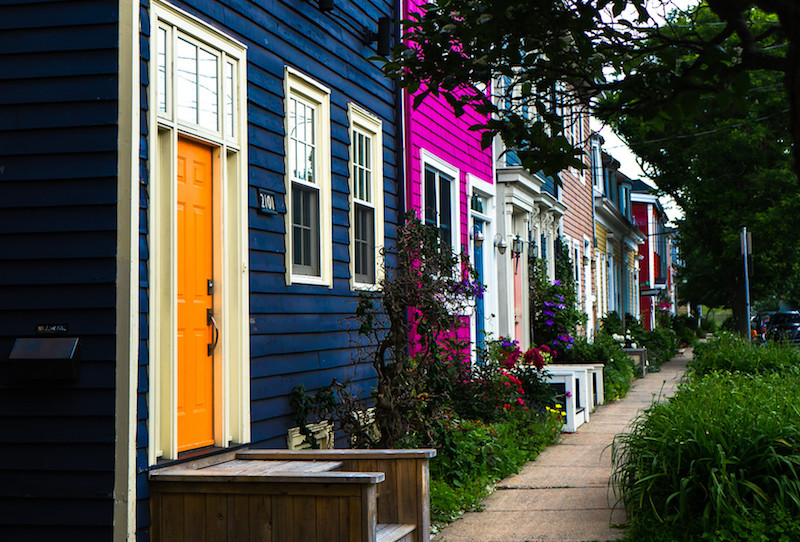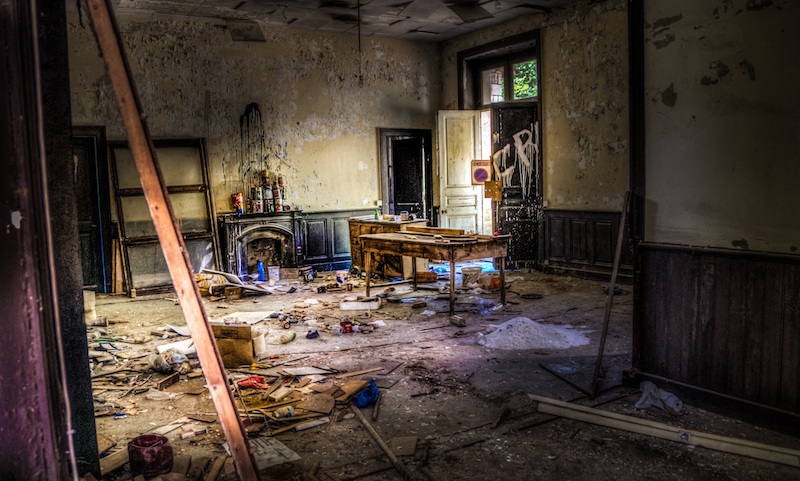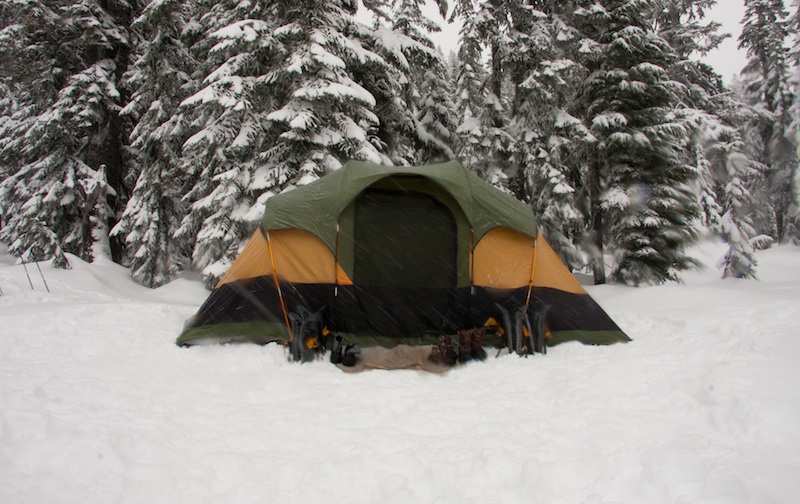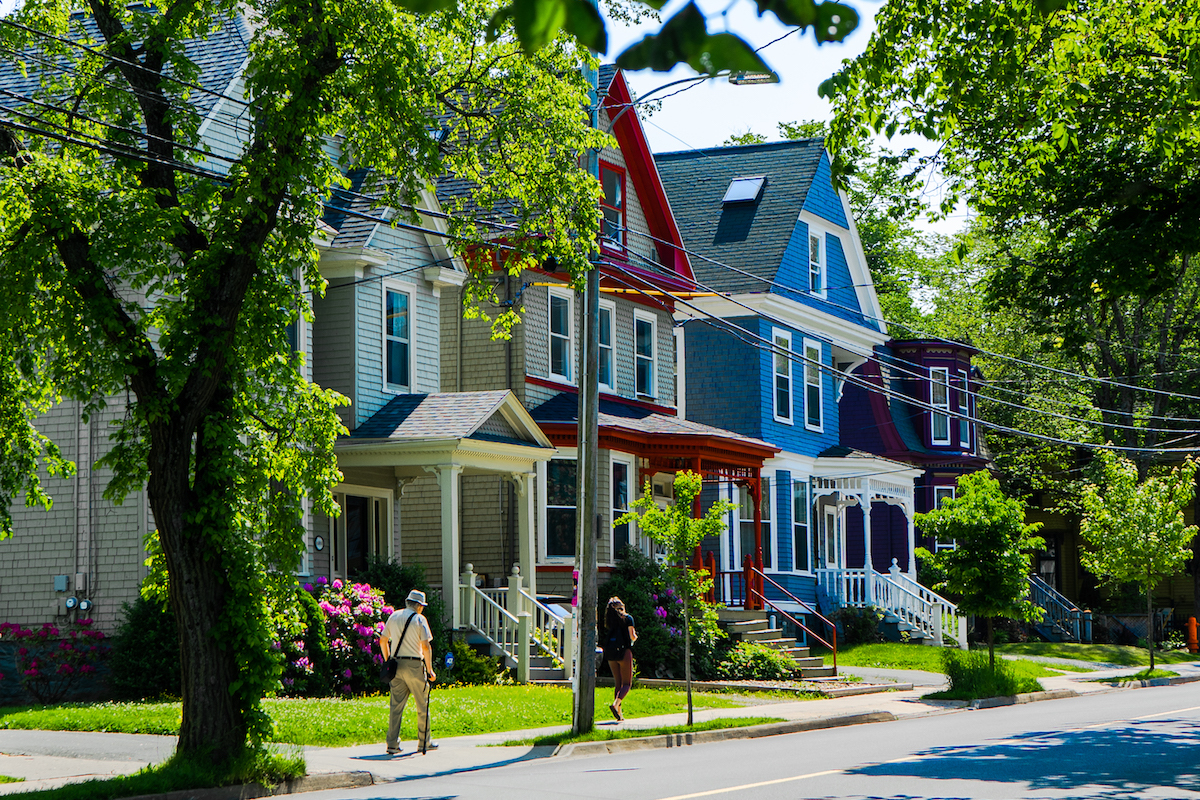Whether you're just starting at Dal and won't be living in residence, or have done the residence life and want to try something different, off-campus living has its own pros and cons. Just make sure you know what to consider before you move.
What type of housing do you want?

Both Halifax (despite the crazy low vacancy rate) and Truro have a bunch of different student housing options: big and small apartment buildings, huge houses, houses divided into flats, and so on. You need to think about the best fit for you. Do you want to live on your own or with roommates?
You can get an apartment for yourself or to share with friends (which usually brings down the cost of rent). If you like having outdoor space, an apartment may not be for you. But it also means you don’t have to shovel snow! Some house landlords will take care of that for you, but you'll have to make sure it's written into your lease.
If you love the company of others, there are houses that have 6–7 bedrooms, meaning you can share with your entire intramural floor hockey team. House flats usually have no more than 2–4 bedrooms, so you have a bit more privacy but still have a ready-made doubles tennis match. Houses and flats will often have some sort of outdoor space, so if you're a whiz on the BBQ these could be good options for you.
What you need to look out for

When you go look at a place the first time, you'll likely be wearing rose-coloured glasses. The excitement of moving out on your own can often cloud your judgement and make you forget to consider certain things like:
- Does it include utilities? If so, which ones (e.g. heat, power, water, WiFi, etc.)? How much will the utilities cost if they're not included in the rental price?
- What's the reputation of the landlord or building? Talking to the current tenants can be very illuminating, and a Google search will let you know if the property or the landlord have been in the news (for good or bad reasons).
- What's the condition of the place? Is there an elevator that seems perpetually out of order? Is the front porch full of holes and look like it's about to fall off? Are there water stains in the ceilings? Is there mouse or rat poo on the floors or in the cupboards? If it isn’t in the best shape and the landlord/owner doesn’t plan on doing renovations, you might want to check somewhere else.
- What are the terms of the lease? Is it year-to-year, month-to-month, or for a fixed term? Is it for 12 months? You can sometimes find 8-month leases if you want, but most places will require you to sign for at least 12 months (which, if you're not planning on being in town for four months, you may have to deal with subletting).
What's your budget?

This is a big one. How much can you really afford? Low vacancy rates means pricey rents being charged (although it's not entirely impossible to find reasonably priced places). You also have to think about possibly paying separately for your utilities and budgeting money each week for groceries. You want to make sure that you can afford your place and groceries along with your tuition—for the entire year. And be honest with yourself. If you can't survive on $50/week for food and entertainment, don't pretend you can. For some budgeting tips, check out Dal’s Money Matters site.
What part of town do you want to live in?

Do you want to live close to campus? Or do you mind (or prefer) a long walk, cycle, or a bus ride? You might want to try walking from campus to the places you're considering to see how long it takes you. You may not want to get up half an hour earlier to walk to that 8:30am class.
- What's the neighbourhood like? Take a walk around the area to check out the vibe. To get an even better sense of what it's like, take a walk on a Friday night. If you prefer quiet nights at home, you want to make sure your neighbours don't throw huge parties every week.
- What feeling do you get from the neighbours? Do they seem friendly and, well, neighbourly? Or are you going to be frightened to walk out your door?
- How far away is the closest grocery store, bus stop, and other amenities? This is especially important to consider in the winter months when you have to walk in the cold and the snow.
- Do you want to be near a gym? Or be near downtown?
What do you really need?

There are lots of things to consider when looking at places to live.
- Do you need a parking space? Is it included or does it cost extra?
- Do you need a place that allows pets? Don’t look at places that don't allow them if you have/want one.
- Is there outdoor space? Is there a balcony or a yard? Is this something on your must-have list?
- Do you need it to be furnished? If so, be prepared to pay for the convenience.
How to avoid shady landlords

There are some fantastic landlords out there, and unfortunately there some terrible ones. Sometimes they aren’t too honest or concerned about things like the state of their properties, so consider that when you meet with them. Don’t be afraid to ask them questions about the lease and property. A decent landlord will be open and eager to answer your questions and should be willing to help you with any issues you have.
To make sure you know your rights and responsibilities as a tenant have a look at the Residential Tenancy Act and check out the Dal’s Tenant Rights Guide and other great info on the Dalhousie Legal Aid site.
Remember that respect is a two-way street—respect your place and your landlord, and a good landlord will respect you and make the rental experience a positive one.
Final thoughts?

The Dal Off-Campus website has a lot of great information, so take a browse around and think through your options carefully. Dal also has an off-campus housing advisor (housingsupport@dal.ca) who can talk you through the ins and outs of finding a place to live and what you need to know before and after moving in.
Living off campus can be very intimidating but it's great practice for the real-life adulting. Don’t let it scare you away. It's fun to make your own meals and not share a bathroom with 50 people. For more info, check out Dal's Moving Resources page for transitioning to off-campus housing.

